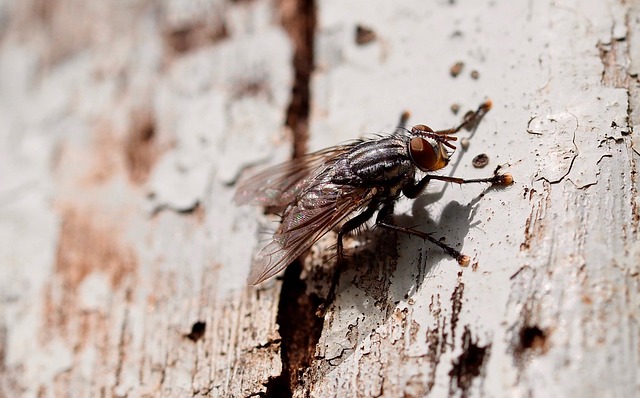Understanding mosquitoes' behavior and life cycle is crucial for effective residential mosquito treatment (RMT). Modern technologies like targeted pest control systems, UV light traps, and biological agents offer eco-friendly alternatives to traditional chemical pesticides. These methods, including introducing natural predators, carbon dioxide-based traps, and habitat modification, minimize environmental impact while controlling mosquito populations. RMT programs combine advanced tech with data analysis for precise, timely interventions, enhancing public health and reducing unnecessary chemical use in urban areas.
“Mosquitoes, though small, pose significant health risks worldwide. In this comprehensive guide, we explore advanced technologies revolutionizing mosquito extermination. From understanding their behavior to comparing traditional and modern methods, we delve into safe and environmentally friendly options.
Key topics include implementing effective residential mosquito treatments, ensuring a comfortable and bug-free living environment. Discover innovative solutions tailored for homes, providing lasting relief from these pesky intruders.”
Understanding Mosquitoes and Their Behavior
Understanding Mosquitoes and Their Behavior
Mosquitoes are more than just a nuisance; they are intricate creatures with distinct behaviors that play a significant role in their ability to thrive and reproduce. In the context of residential mosquito treatment, comprehending these behavioral patterns is crucial for developing effective strategies. Female mosquitoes, known for feeding on blood, are particularly adept at locating hosts through carbon dioxide exhaled, body heat, and other chemical cues. This sophisticated navigation system allows them to not only find people but also choose specific locations on the body for feeding.
Their life cycle, which involves four stages—egg, larva, pupa, and adult—is closely tied to water sources, making standing bodies of water ideal breeding grounds. This knowledge is pivotal in residential mosquito control, as it highlights the importance of eliminating or treating stagnant water to disrupt their reproduction cycle. By combining these insights with advanced technologies like targeted pest control systems and biological agents, homeowners can achieve more efficient and eco-friendly mosquito extermination.
Traditional vs Advanced Extermination Methods
Traditional methods of mosquito extermination often involve spraying toxic chemicals, which can be harmful to both the environment and human health. These methods are quick fixes that only target the surface level of the problem. In contrast, advanced technologies for residential mosquito treatment offer safer, more effective solutions.
Innovations like targeted UV light traps, ionization devices, and biological controls such as bacteria or viruses specifically target mosquitoes while minimizing harm to other insects and ecosystems. These advanced techniques not only provide a more environmentally friendly approach but also offer long-term protection through continuous monitoring and adjustment, ensuring a mosquito-free environment for residential areas.
Safe and Environmentally Friendly Technologies
In the pursuit of effective mosquito control, it’s crucial to explore advanced technologies that offer both safety and environmental friendliness, especially for residential areas. Traditional methods often rely on chemical pesticides, but these can have adverse effects on non-target species, including beneficial insects and local ecosystems. As a result, there is a growing emphasis on innovative solutions that provide relief from mosquito habitats without causing harm.
One such technology involves the use of biological controls, such as introducing natural predators like certain fish species or insect parasites that target mosquitoes specifically. These methods are safe for humans and pets while effectively reducing mosquito populations. Another promising approach is the utilization of mosquito traps that employ light and carbon dioxide to attract and capture mosquitoes, offering a clean and eco-friendly alternative to chemical sprays. These technologies ensure effective residential mosquito treatment without compromising the health of the environment.
Implementing Residential Mosquito Treatment Programs
Implementing Residential Mosquito Treatment Programs offers a comprehensive solution to managing and eliminating mosquito populations in urban areas. This involves a multi-faceted approach tailored to the specific needs of each neighborhood or community. Professionals employ advanced technologies, such as targeted pesticide applications, to minimize environmental impact while maximizing effectiveness. By combining these methods with habitat modification strategies, like removing standing water sources, residents can significantly reduce mosquito-borne disease risks.
Regular monitoring and data analysis play a pivotal role in successful programs. Trained technicians utilize sophisticated sensors and traps to track mosquito activity levels, allowing for precise timing of interventions. This data-driven approach ensures that treatments are applied only when needed, reducing unnecessary chemical use and associated costs. As a result, Residential Mosquito Treatment Programs not only enhance public health but also foster safer, more livable environments for residents.
Advanced technologies offer promising solutions for effective and safe mosquito extermination, transforming the way we combat these pests. By understanding mosquito behavior and adopting innovative methods like targeted treatments, genetic control, and advanced surveillance systems, we can create robust residential mosquito treatment programs. These strategies not only protect communities from disease-carrying mosquitoes but also ensure environmental sustainability, providing a healthier and more enjoyable living space for all. Implementing these technologies is a significant step towards a mosquito-free future.
